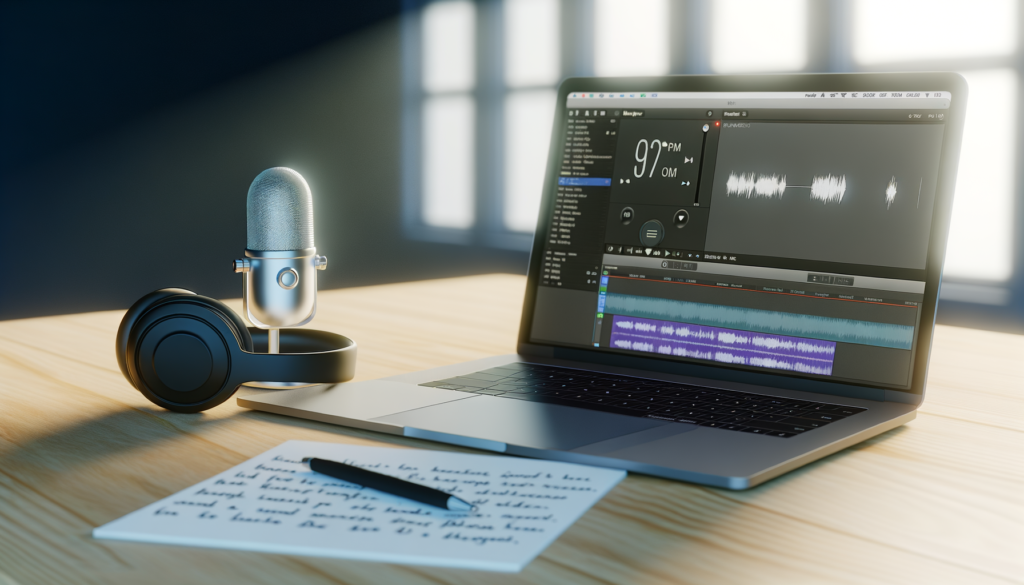Introduction to NotebookLlama
Meta’s latest venture, NotebookLlama, has stirred up quite the buzz in the tech community. As if the podcasting world wasn’t already saturated, here comes Meta with its open-source AI podcast generator, aiming to give Google’s NotebookLM a run for its money. It’s like watching a heavyweight boxing match, but instead of fists, we’re throwing around algorithms and models.
What makes NotebookLlama particularly intriguing is its open-source nature, which allows developers and creators to dive in, tweak, and potentially revolutionize the way we think about audio content. Imagine the creative possibilities—it’s like a buffet of opportunities for podcasters!
The Four-Stage Process of NotebookLlama
Understanding how NotebookLlama operates can feel like peeling an onion—there are layers to this thing. Here’s how it breaks down into four stages:
Pre-processing
The journey begins with a solid foundation, courtesy of the Llama-3.2-1B-Instruct model. This baby takes raw data and gets it ready for the next steps. Think of it as the sous chef prepping ingredients before the main course hits the stove.
Transcript Generation
Next, we move on to the magic of the Llama-3.1-70B-Instruct model, which crafts transcripts from the audio. This is where the real heavy lifting happens. If you’ve ever struggled with transcribing a podcast episode, you’ll appreciate how this model does the hard work for you, translating spoken word into text.
Dramatic Enhancement
Now, let’s spice things up with the Llama-3.1-8B-Instruct model. This stage is all about adding flair—think of it like a director choosing the right music to set the mood for a scene. It enhances the script to ensure it’s not just robotic speech but something that can truly engage listeners.
Text-to-Speech
Finally, we reach the grand finale: the parler-tts-mini-v1 and bark/suno models take center stage. They convert text into speech, aiming for a natural and engaging audio experience. However, let’s be real—sometimes it sounds more like a robot trying to impersonate a human than an actual conversation.
Technical Analysis and Models Used
Diving deeper into the tech side of things, the models used in NotebookLlama are quite fascinating.
– The Llama-3.2-1B-Instruct model sets the groundwork, but it’s the Llama-3.1-70B-Instruct that really shines in transcript generation.
– The Llama-3.1-8B-Instruct model adds that dramatic flair, but one can’t help but wonder if it’s too much at times.
When comparing these models with Google’s NotebookLM, it’s clear that both have their strengths and weaknesses. While Google leans heavily on its vast resources, Meta’s open-source approach could foster a community-driven evolution that Google might struggle to match.
Current Limitations and Future Improvements
Let’s not sugarcoat it—there are some hiccups with NotebookLlama. The text-to-speech output can come off as a bit mechanical, almost like a bad impersonation of your favorite podcast host. There are overlapping voices that create a cacophony instead of a harmonious discussion.
To improve this, Meta could look into more advanced models that enhance the audio quality. A suggestion for the future? Imagine two AI agents discussing a topic collaboratively, bringing in different perspectives. That could add a layer of depth that is sorely missing right now.
Another pressing concern is the issue of hallucinations in AI-generated content. Sometimes, the output can be wildly inaccurate or bizarre, making listeners question the reliability of the source. Addressing this would be crucial for gaining trust in the AI-generated podcast space.
Implications and Future of AI-Generated Podcasts
The launch of NotebookLlama could significantly shake up the podcast industry. With AI-generated content, we’re looking at a revolution in how people create and consume audio.
Open-source benefits are huge here—imagine a community of innovators pushing the boundaries of what’s possible. But let’s not ignore the challenges. There’s a thick fog of ethical considerations surrounding AI-generated media that needs to be navigated carefully.
Looking ahead, the focus should be on improving the accuracy and naturalness of AI-generated podcasts. If done right, we could be on the brink of a new era in podcasting that blends technology and creativity in ways we can only dream of today.



